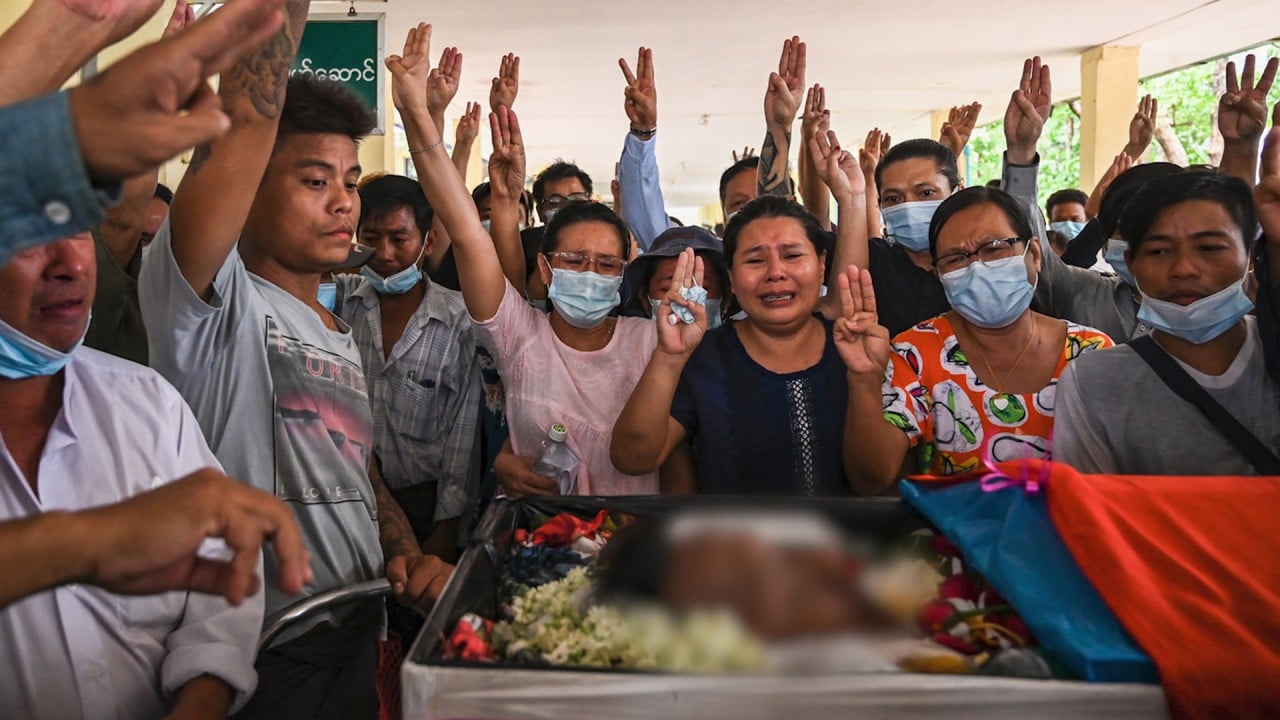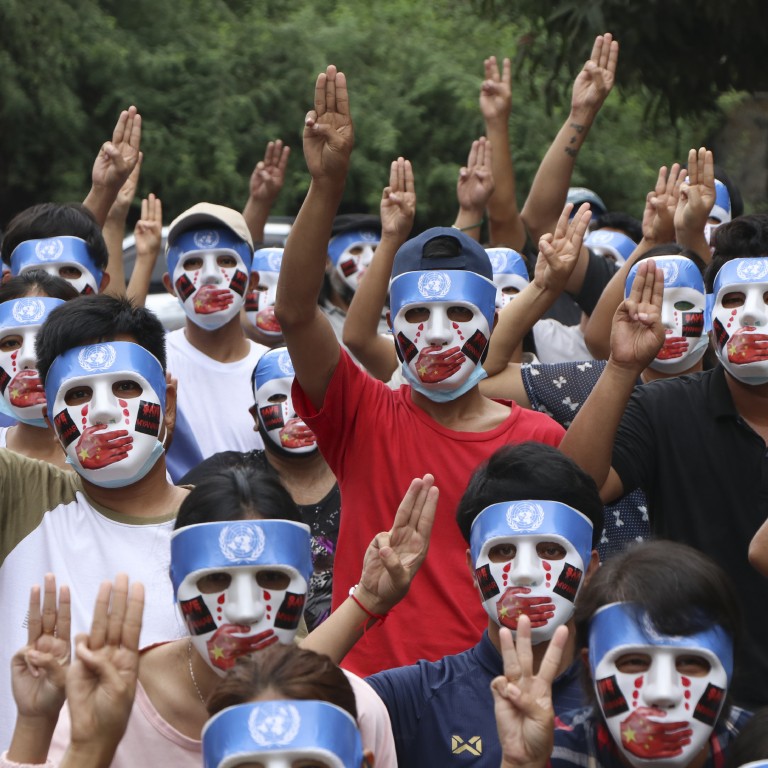
‘I still get nightmares’: Myanmar student protesters traumatised after beatings in prison
- The junta has resorted to mass detentions and custodial violence to muzzle the student-led movement demanding a return to democracy
- Jailed student protesters say they were fed bad food, beaten with batons and threatened with guns by prison guards
The journalism student stayed locked up for more than three weeks, alongside some 300 other university students who took part in the demonstration on March 3, before the military junta released them all without explanation on March 24.
“We were told to sit down at first. Some police officers pointed guns at my friends and beat us with batons,” he said. “Other officers came and stopped them and then we lined up to get into the prison trucks.”
HK lecturer refuses online exam request from Myanmar student
Residents of the area tried to stop the trucks from leaving, said Han, who preferred not to give his full name, but after about three hours the students were taken to Insein Prison, notorious for its alleged human rights abuses.
Han said he and the others were interrogated upon arrival and the protest leaders taken away. Those below the age of 18 were eventually released while those who were older – mostly aged 19 to 24 – were detained.
He said he was placed in a cell with 74 others – each of whom were given two blankets, one sarong-like garment known as a longyi, plain rice and soup.
“It was terrible and I threw it away,” Han said of the food. “Everyone was mentally drained. We all prayed for our release every day.”
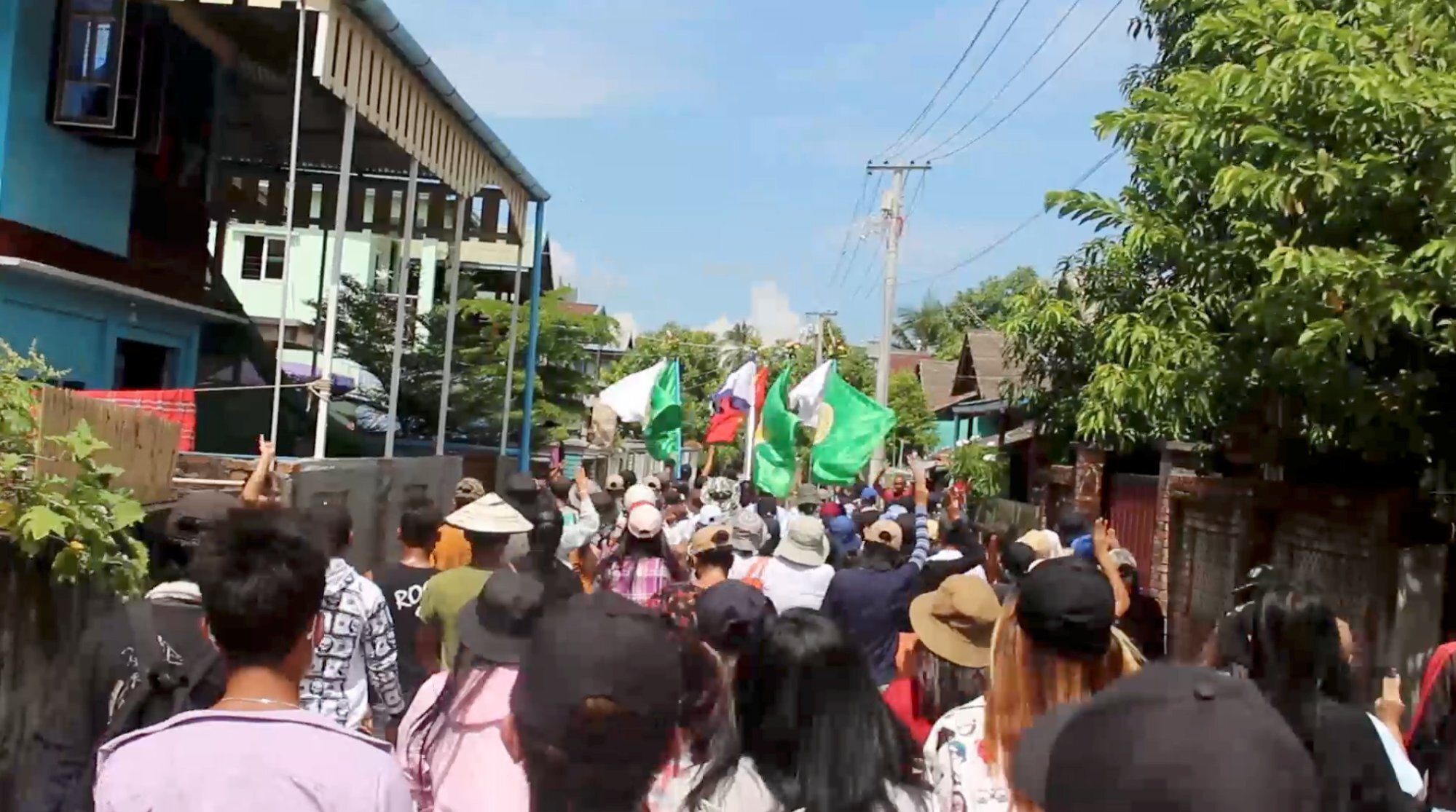
Myanmar has a relatively young population – the median age of its 53 million or so people is 29, according to Statista. About 12 million are below the age of 18, the United Nations estimates.
Children and young people are among some 700 people who have been killed amid the security forces’ crackdown on protests.
Myanmar doctor’s path from a rural village to leading a resistance
For Myanmar’s youth, the turmoil comes after a year of widespread school closures because of the Covid-19 pandemic. Many schools remain closed since most of the teachers joined the Civil Disobedience Movement and students refused to return to schools under military regime.
It said security forces have reportedly occupied more than 60 schools and university campuses in 13 states and regions.
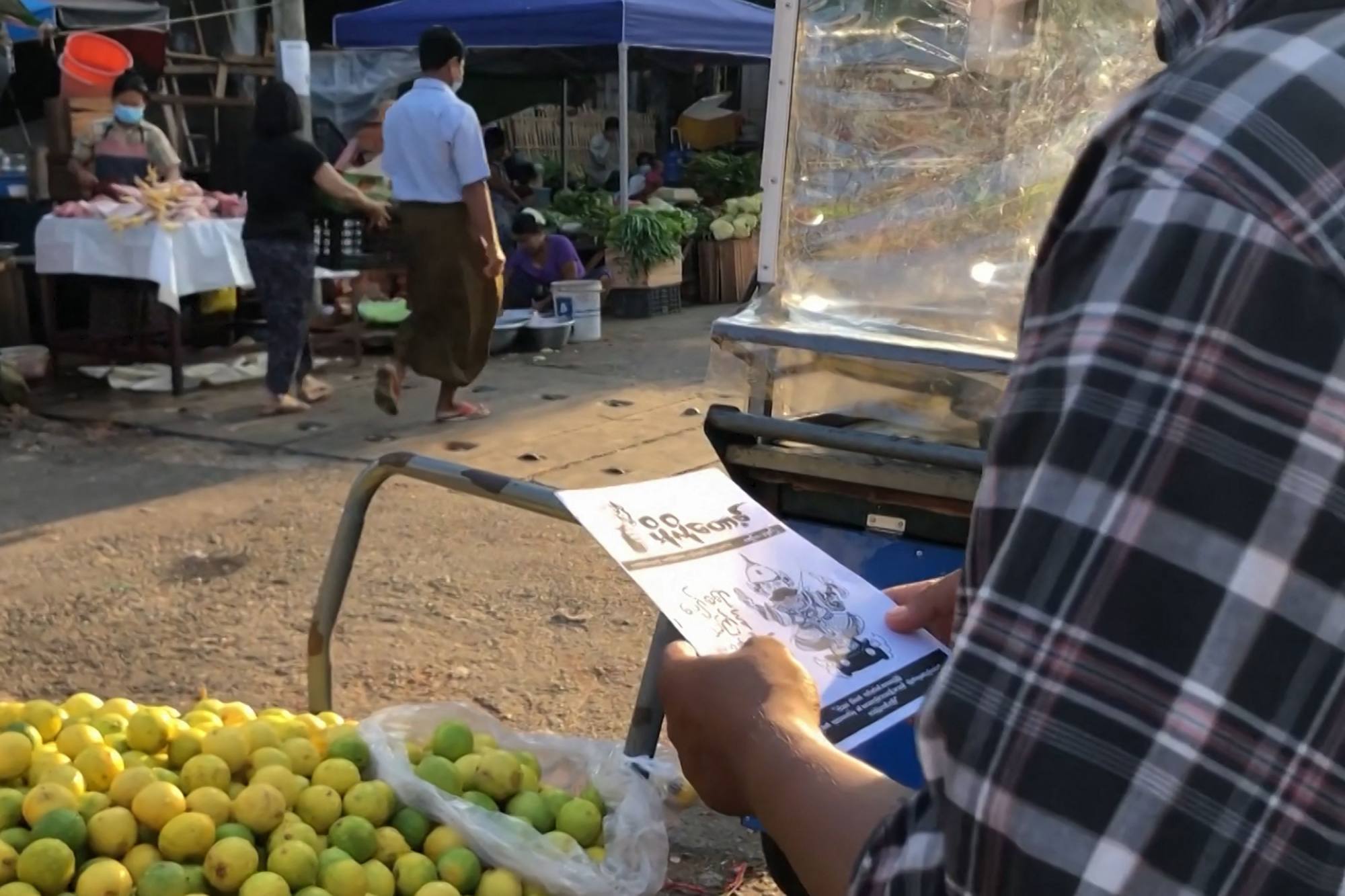
Some Myanmar youth have been fighting the junta’s internet shutdown and information suppression with underground printed newsletters they are secretly distributing across communities.
Lynn Thant, not his real name, said he started the underground newsletter and gave it the edgy name Molotov to appeal to young people.
“This is our response to those who slow down the flow of information -- and that’s a threat to us,” said the 30-year-old said, adding that he was aware of the risks involved.
“If we write revolutionary literature and distribute it like this, we could end up in prison for many years,” he said, his face concealed by one of the Guy Fawkes masks popularised by the dystopian movie “V for Vendetta”.
Three university students told This Week in Asia they felt mentally exhausted and suffered from anxiety.
Another student, who requested anonymity, said she was now afraid to talk to the media as she did not want to be detained again.
“They already have our records. So next time, they will not let us go for sure,” the student said, adding that she could be charged under Section 505(A) for defamation of the state.
Amid Myanmar violence, there is one township in Yangon that ‘scares the military’
Kyaw, another person who was detained at Insein Prison for three weeks, said: “We went out to protest because we wanted to stand up for the truth. But we were beaten and arrested.
“The deaths of some NLD party members in police custody reminded us of not to get arrested after being released this time,” said 22-year-old Kyaw, a University of West Yangon student who declined to give his full name.
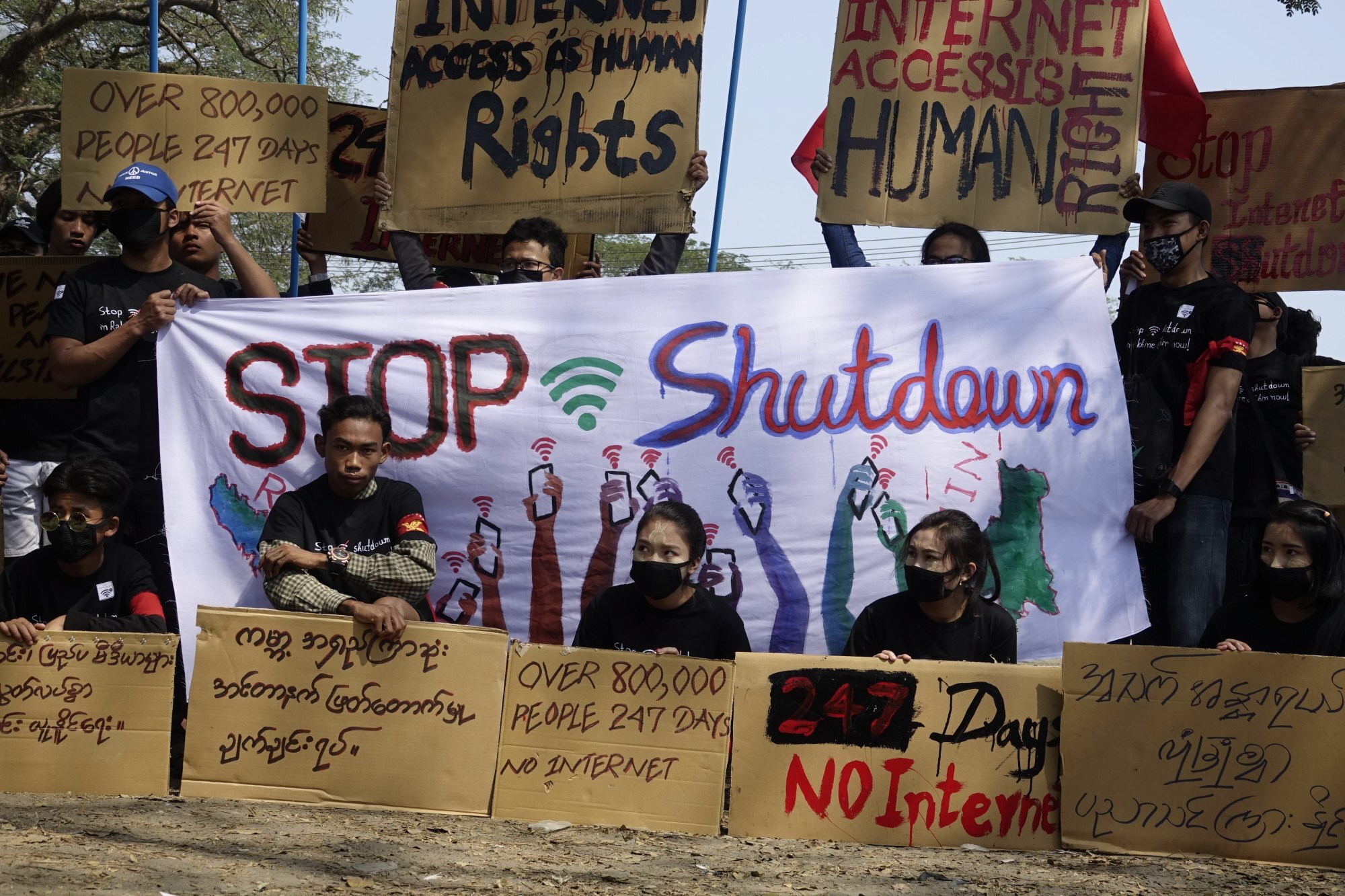
Han, the journalism student, said detainees at Insein were woken up at 5.30am for a spot check to ensure all were accounted for.
“We were allowed to go back to sleep after that. We were given rice porridge at 7am and permitted to socialise with others in the open air twice a day,” Han said.
He added he was unable to sleep for a few days and avoided using the open toilet in the cell.
He said the military took about 30 student leaders from his group at night for questioning and assaulted them.
After his ordeal, Han said his parents had now ordered him to stay at home.
“I will not go out to protest for a while,” Han said. “I need to heal myself first as I still get nightmares of being in my cell and I cry sometimes.”
Additional reporting by AFP


